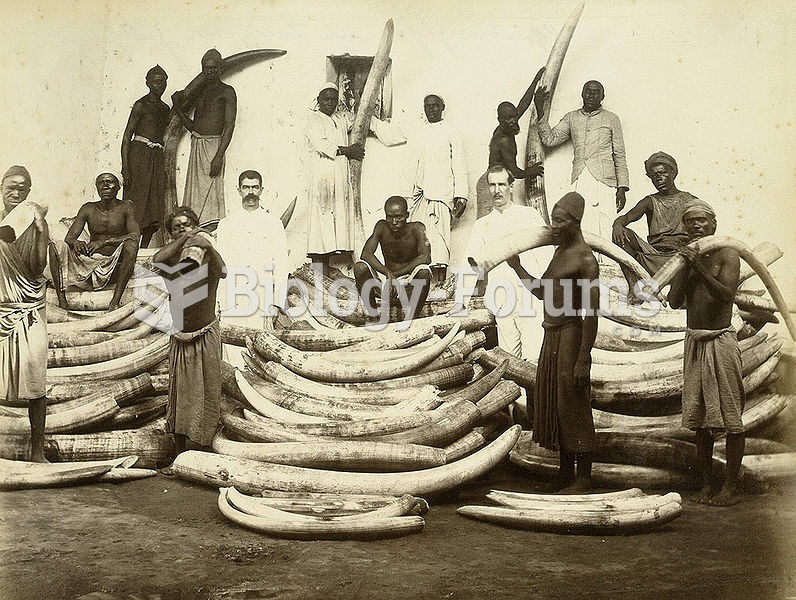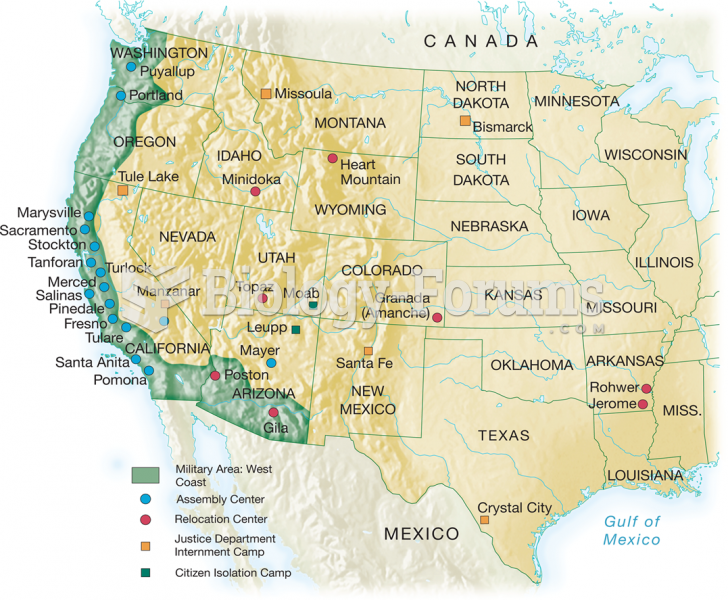|
|
|
The eye muscles are the most active muscles in the whole body. The external muscles that move the eyes are the strongest muscles in the human body for the job they have to do. They are 100 times more powerful than they need to be.
About 60% of newborn infants in the United States are jaundiced; that is, they look yellow. Kernicterus is a form of brain damage caused by excessive jaundice. When babies begin to be affected by excessive jaundice and begin to have brain damage, they become excessively lethargic.
By definition, when a medication is administered intravenously, its bioavailability is 100%.
Cancer has been around as long as humankind, but only in the second half of the twentieth century did the number of cancer cases explode.
The human body produces and destroys 15 million blood cells every second.







